Ann Hood walks into our neighborhood hangout–Cafe Cluny in New York’s West Village–pops off her winter cap, and sits down across from me, all with a big smile on her face.
It occurs to me I’ve never seen Ann not smiling: like, I mean wide, enthusiastic, I’m-really-not-being-ironic-in-my-hamminess way. She smiles in all her Facebook pictures of her with her two children, 28-year-old actor Sam (“He just got signed to do a Law and Order!” she tells me) and high school graduate/budding writer Annabelle (“She’s applying to colleges and she got a contract for an animated book!”). And she smiles in photos at her many reading and teaching events and in pictures of her with her husband of five years, cookbook author and foodie extraordinaire Michael Ruhlman.
Her memoir stars a determined working-class Rhode Island striver who chose to see the world rather than become a post-college bride.
That Ann re-learned to be happy after suffering the unthinkable twenty years ago is what we are going to talk about tonight. Though first we raise our wine glasses to her thirteenth book (out in May) Fly Girl, an account of her years, from 1978 to 1986, as a TWA stewardess (yep, that was the right term then). She had to learn “how to evacuate seven kinds of aircraft, fix a broken coffeemaker, deliver a baby, mix proper cocktails, carve a chateaubriand, administer oxygen… make a… rattle out of two plastic cups and a couple of TWA propeller-shape swizzle sticks…deal with drunk passengers” and more. “Somebody said `I’m exhausted with all the things you had to do,” she says, raising her glass of carefully selected Cabernet.
Fly Girl is a delicious you-are-there–romances with passengers included–starring a determined working-class Rhode Island striver from a big, happy Italian-American family who chose to see the world rather than become a post-college bride and who always knew she was going to be writer. (Ann wrote part of her first novel, Somewhere Off The Coast of Maine, in her jump seat, wearing her Ralph Lauren TWA uniform.)
Read More: We All Can’t be as Bold as “It Girl” Eve Babitz Was, But She’s Been Fun to Watch
The Unimaginable Loss
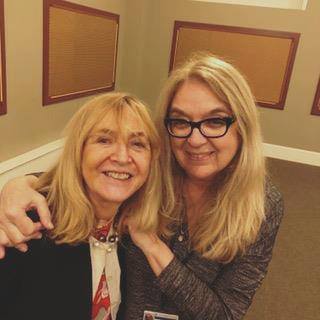
Sheila Weller with Ann Hood at a recent conference.
Ann made that good writer’s life for herself–seven books by April 2002. Then, one night, she and her husband took their five year old daughter Grace to the local hospital with what seemed like a normal fever. Grace–Ann’s darling girl, with whom she sang Beatles songs on the drive to school–actually had a virulent form of strep, and within 48 hours she was dead. Ann beat her hands against the ICU glass pane, and for the next two years she couldn’t write or think–she could barely get dressed. “I just walked around saying `Fuck, fuck, fuck!’” she says.
Am I going to be the woman whose kid died? Or the woman who kept on living?
Ann wrote her luminous, widely praised Comfort: A Memoir of Grief, about these years. It is her favorite of her books, she tells me, and one she thought she’d never write because “it is about making sense out of chaos and her death made no sense to me.” Elle called it “harrowing…completely spellbinding.”
But there was one story she didn’t put in it:
Parents at the school that her son Sam (then eight) attended kept telling her that the librarian there, a woman named Carla, wanted to talk to her. “Why?” Ann wondered in an almost prickly way. “I don’t know her at all.” Ann resisted–until one day, very hesitantly, she agreed. “Carla–a beautiful, five-feet-eleven-inch, blue eyed woman–looked at me and said, `I want to tell you a story.’ She had two boys, two and five. It’s a beautiful day and she takes them to the playground. She realizes it’s late and she hasn’t started dinner. She races home and the younger one is whining, `I’m hungry’ so she hands him a carrot.” The carrot was not adequately sliced up, and the toddler begins choking. After a panicked call to 911 and efforts at resuscitation, he died.
In order to deal with her debilitating grief, Carla went to the school library and told the librarian she just wanted to put the books back on the shelf–a robotic, comforting task. After weeks of doing that, Carla had an epiphany: “I’m going to go to library school and become a librarian.” In that moment, Carla told Ann, “I thought: `What is going to define me? Am I going to be the woman whose kid died? Or the woman who kept on living?’” That resonated with Ann–deeply.
Out of Grief
Her next big decision–some years later–was to leave her husband. It was not a good marriage, she makes very clear. “I thought, ‘I have to get out of this.’ I worked for five years, with the help of my therapist, to extricate myself financially before I left. I sold my car and bought an inexpensive one. My mother helped me get a mortgage for a loft in Providence [Rhode Island]. I looked around the new, empty loft–and I never felt better in my life.”
Most of us are probably old enough to remember that ‘80s Pantene commercial, starring an early modeler of super-filled, pouty lips: “Don’t hate me for being beautiful,” she says. Well, don’t hate Ann for the rest of this story; she already paid the price.
I looked around the new, empty loft–and I never felt better in my life.
Michael Ruhlman–a handsome, outgoing gourmet cook–had briefly met Ann at a book festival in 1988. He was not yet an author. He caught up fast. Now he has written or co-written over two dozen cookbooks. Among his friends or writing partners are America’s most significant chefs, like Le Bernardin owner Eric Ripert, and he was very close to the late Anthony Bourdain.
As he would later put it, he fell in love with her from afar. “We re-met five years ago,” she says, “when my publicist at Norton wanted a food writer to interview me because I write a lot about food.” Ann’s most recent food book, combining her love of food with her love of knitting, is Kitchen Yarns. “We went to an Italian restaurant,” Ann recounts, “and I told him: `This is the worst food I’ve ever had. He said, `I’m so relieved that you agree with me. May I buy you a bourbon?’ The waiter brings these whiskeys with these giant ice cubes. And we drink, and we look at each other–and he says, ‘I want to be with you for the rest of my life.’”
They married in a tiny Greenwich Village park right near their Manhattan apartment (they commute between the Village digs and the Providence loft) on a very sunny day in 2017, with novelist Laura Lippman officiating.
“I’m so lucky! I found the right man–at 58!” she says. “And he’s seven years younger than me.” This is definitely NextTribe territory.
What Defines You?
Often, in the morning, Ann and Michael decide, in a very leisurely way, what they are having for dinner, mostly making those meals, like chicken mole and braised lamb shanks, from scratch. And every night they have cocktails at six. “He makes five margaritas–he’s writing a book about cocktails–and I taste each one and he asks, `What do you think?’ That’s kinda fun.” She then expands that to: “We have so much fun!”
Ann says that when she heard librarian Carla’s story, she heard it as: ‘What defines you? Does the tragedy defeat you or make you stronger?’ I made a decision too. It’s funny, but when the worst thing happens it frees you to see things differently.”
Not that Ann didn’t have resilience before this happened, but–since even resilience can be hard to maintain after that level of pain–her life is a point-taken to this.
Read More: Peggy Lipton on Aging, Dating, and Her Best Anxiety Cure


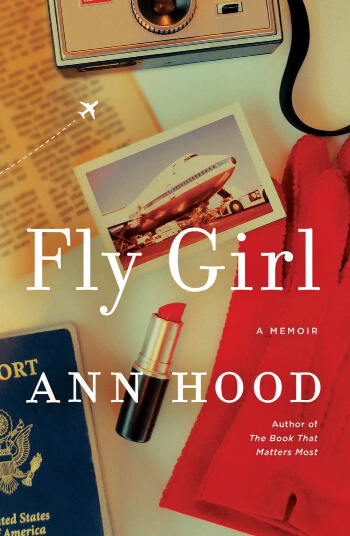
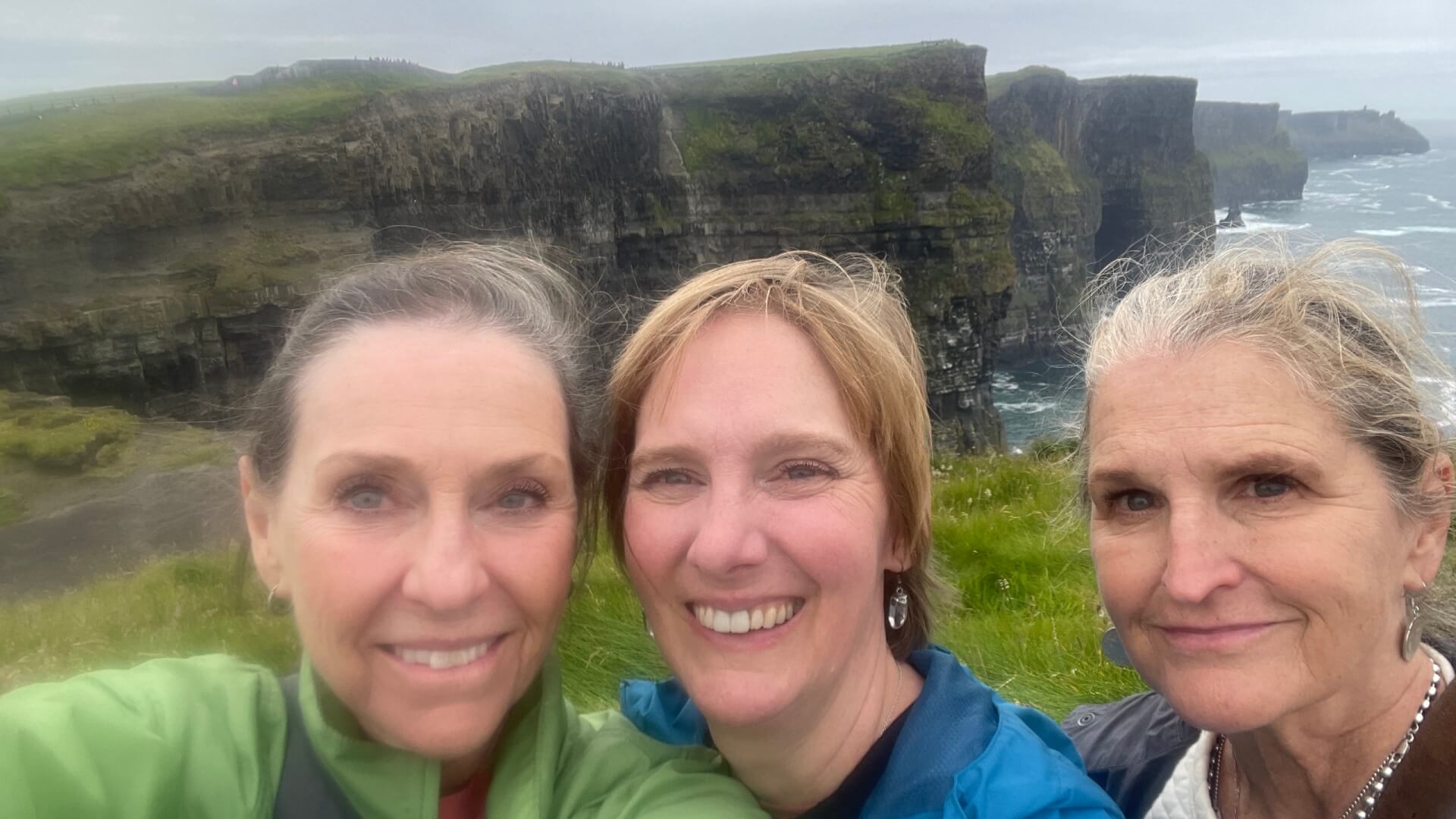
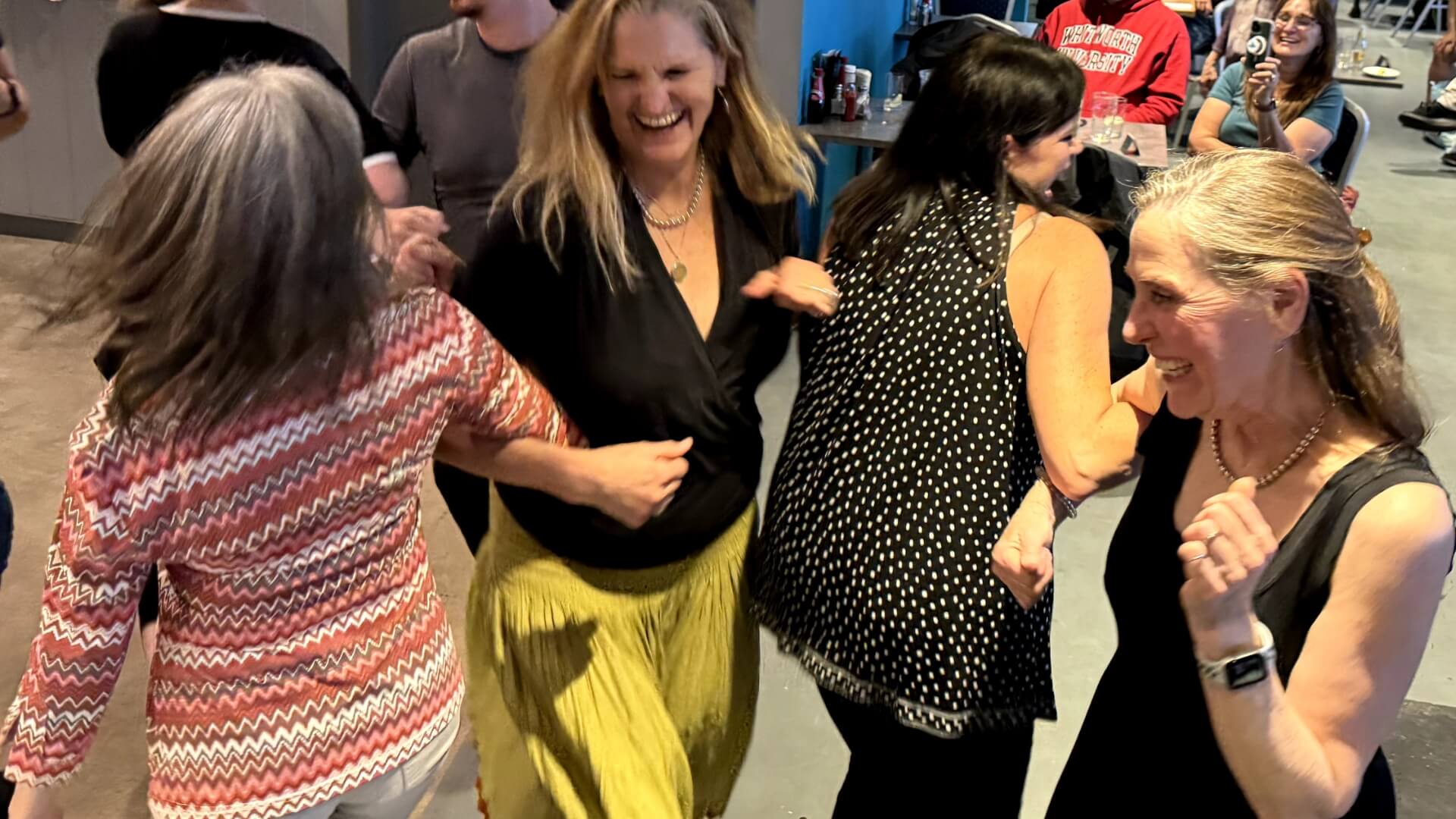
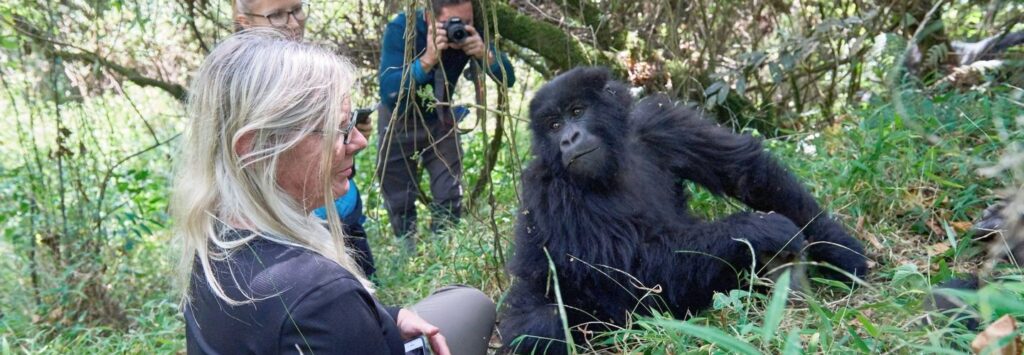








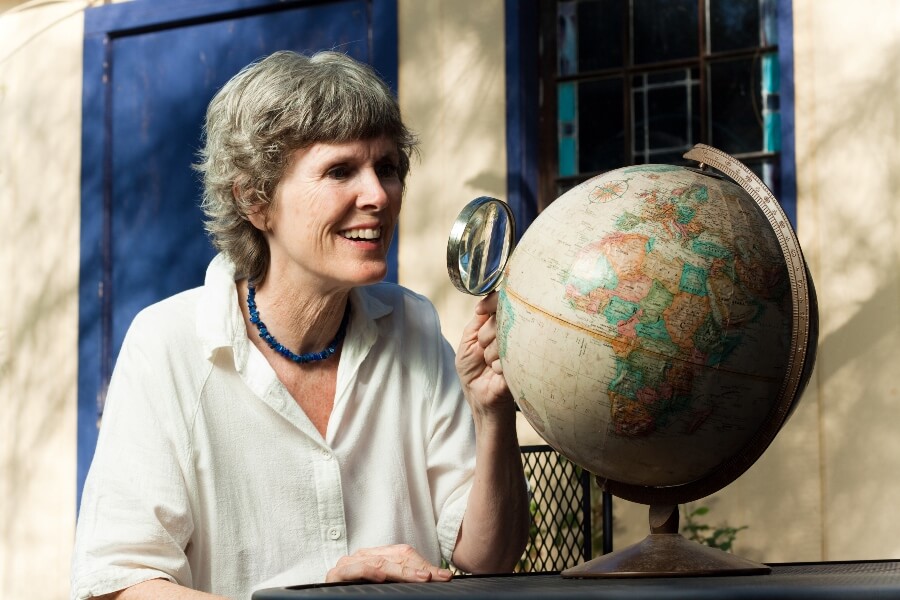
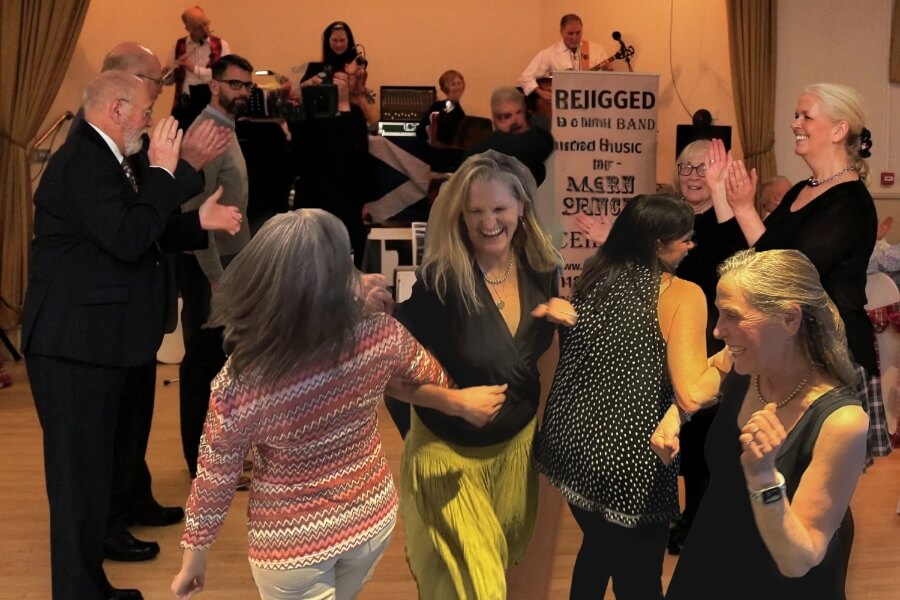

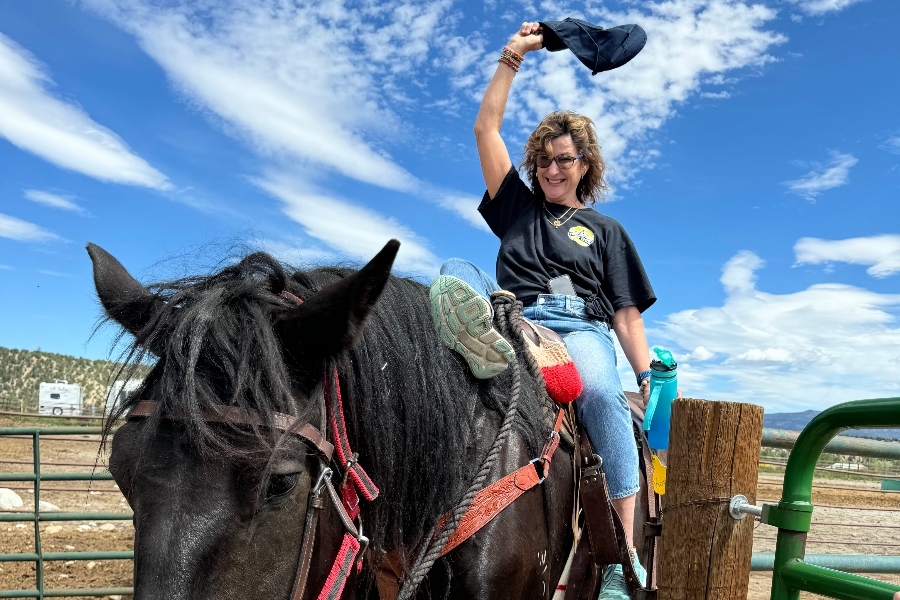



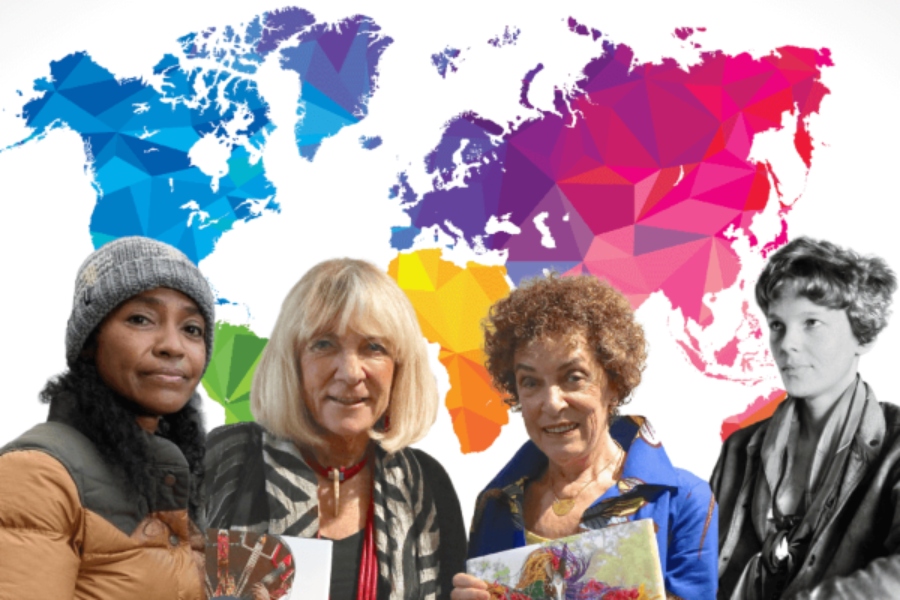

0 Comments